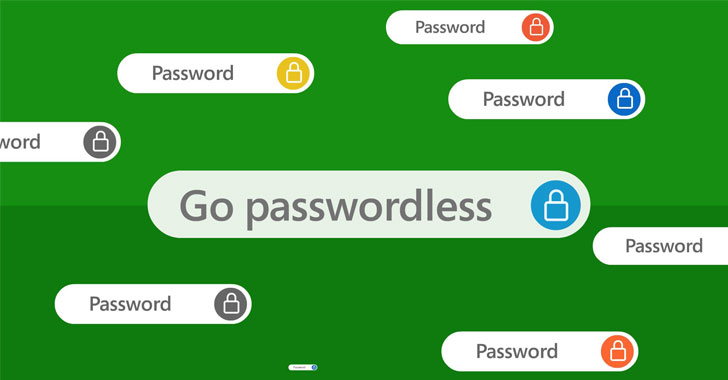Microsoft on Wednesday announced a new passwordless mechanism that allows users to access their accounts without a password by using Microsoft Authenticator, Windows Hello, a security key, or a verification code sent via SMS or email.
The change is expected to be rolled out in the coming weeks.
“Except for auto-generated passwords that are nearly impossible to remember, we largely create our own passwords,” said Vasu Jakkal, Microsoft’s corporate vice president for Security, Compliance, and Identity. “But, given the vulnerability of passwords, requirements for them have gotten increasingly complex in recent years, including multiple symbols, numbers, case sensitivity, and disallowing previous passwords.”
“Passwords are incredibly inconvenient to create, remember, and manage across all the accounts in our lives,” Jakkal added.
Over the years, weak passwords have emerged as the entry point for a vast majority of attacks across enterprise and consumer accounts, so much so that Microsoft said there are about 579 password attacks every second, translating to a whopping 18 billion every year.
The situation has also been exacerbated by the need to create passwords that are not only secure but are also easy to remember, often resulting in users reusing the same password for multiple accounts or relying on easy-to-guess passwords, ultimately making them vulnerable to brute-force password spraying attacks.
Jakkal notes that 15% of people use their pets’ names for password inspiration, not to mention utilize family names and important dates like birthdays, with others banking on a formula for their passwords — “like Fall2021, which eventually becomes Winter2021 or Spring2022.
By dropping passwords out of the equation, the idea is to make it difficult for malicious actors to gain access to an account by leveraging a combination of factors such as your phone (something you have) and biometrics (something you are) for identification.
Customers can use the new feature to sign in to Microsoft services such as Microsoft 365, Teams, Outlook, OneDrive, and Family Safety, but after linking their personal accounts to an authenticator app like Microsoft Authenticator, and turning on the “Passwordless Account” setting under Advanced Security Options > Additional Security Options.
Found this article interesting? Follow THN on Facebook, Twitter and LinkedIn to read more exclusive content we post.
Originally found on Feedzy. Read More


![[VIDEO] Meghan McCain Just Can’t Stop Blasting Biden Lately…](https://manateeherald.com/wp-content/uploads/2021/06/300-4IokkF.jpeg)




